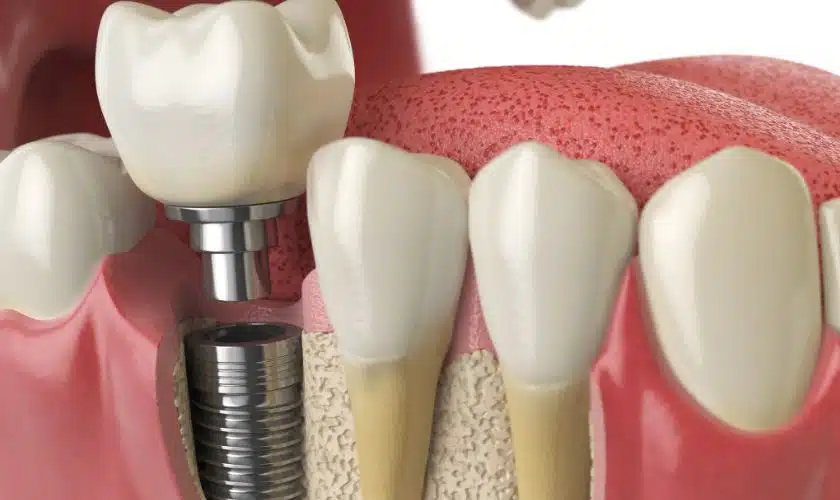Are you considering getting dental implants but wondering if skipping the bone graft procedure is a smart move? While it may seem like an unnecessary step in the process, neglecting this crucial aspect of implant dentistry can have severe consequences down the line. In this blog post, we’ll explore what happens when you skip the dental bone graft and why it’s essential to ensure long-term success with your new smile. So buckle up and get ready to learn!
What are Dental Bone Grafts?
Dental bone grafts are a common procedure that is performed to help improve the overall health of your mouth. The goal of a dental bone graft is to add new bone to an area where there is a deficiency. This can help to improve the strength of your teeth and jaws, and it can also help to improve your overall oral health.
There are many different reasons why someone might need a dental bone graft. One common reason is due to periodontal disease. Periodontal disease is an infection of the gums that can damage the supporting structures of the teeth. This can lead to tooth loss and instability, which can then lead to a need for a bone graft.
Another common reason for needing a dental bone graft is due to an injury or trauma. If you have suffered an injury to your mouth or teeth, some of the bone may have been lost. In these cases, a bone graft can help to replace the missing bone and provide support for the surrounding teeth.
If you are considering getting implants, you may be wondering if you need a dental bone graft first. The answer to this question depends on several factors, including the overall health of your mouth, the location of the implant, and the type of implant being used. Your dentist will be able to evaluate these factors and make a recommendation as to whether or not you need a bone graft before getting implants.
What are the Benefits of Getting a Dental Bone Graft?
If you are considering dental implants, you may have heard that you need a bone graft first. This is a surgical procedure to add bone to your jaw to provide a solid foundation for the implant. While it may seem like an extra step, there are several benefits to getting a dental bone graft before getting implants.
The first benefit is that it can help you avoid complications down the road. When you get a bone graft, your dentist in Queen Creek will take healthy bone from another area of your body and transplant it into your jaw. This will not only make your jaw stronger but also help to prevent complications such as infection or rejection of the implant.
Another benefit of getting a bone graft is that it can improve the success rate of your implant surgery. A strong foundation is essential for successful implant surgery, and a bone graft can give you the best chance for success. In addition, if you have had previous unsuccessful implant surgery, a bone graft can increase the chances of success with future surgeries.
Finally, getting a dental bone graft can also help to improve the aesthetics of your smile. If you are missing teeth, they can cause gaps in your smile that are difficult to hide. A bone graft can fill in these gaps and give you a fuller, more natural-looking smile.
Source: Teeth Talk Girl
Possible Complications if You Skip the Bone Graft
If you choose to forgo dental bone graft surgery before getting implants, you may face a few complications. The first and most obvious complication is that your implants may not fuse properly with your jawbone. This can lead to instability in your teeth and make it difficult to chew or speak without fear of your teeth shifting. Additionally, you may experience pain and inflammation in your gums due to the implant rubbing against them. In extreme cases, the implant may even pierce through the gum tissue. Finally, skipping the bone graft means that you will likely need more extensive surgery down the road to correct any issues that arise as a result of not having the bone graft initially.
Alternatives to Bone Grafting for Implants
If you’re considering getting dental implants, you may have heard that you need to have a bone graft first. But what if you skip the bone graft? What are the alternatives?
There are a few alternatives to bone grafting for dental implants:
1. Allogeneic bone graft: This type of bone graft uses donor tissue from another person. It’s typically used when there’s not enough healthy bone tissue in the area where the implant will be placed.
2. Autogenous bone graft: This type of bone graft uses your healthy bone tissue. It’s often taken from another area of your mouth, such as your chin or hip.
3. Synthetic bone graft: This type of bone graft uses man-made materials to replace or stimulate new bone growth. Synthetic bone grafts are usually made from hydroxyapatite or tricalcium phosphate.
4. Platelet-rich plasma (PRP): PRP is a relatively new treatment that uses your blood to promote healing and new tissue growth. During PRP therapy, a small amount of blood is drawn from your arm and then centrifuged to concentrate the platelets. The concentrated platelets are then injected into the area where the implant will be placed.
5. Stem cell therapy: Stem cell therapy is another newer treatment option that shows promise for promoting healing and new tissue growth. During stem cell therapy, stem cells are harvested from your own body
How to Prepare for Your Dental Implant Surgery
If you’re considering dental implants, you may be wondering what the surgery entails. One important step in the process is the dental bone graft, which helps to ensure that your implant will have a solid foundation. Here’s what you need to know about this crucial procedure.
The first thing to understand is that not everyone needs a bone graft before getting implants. Your dentist will evaluate your case and let you know if a graft is necessary. In general, though, people who have suffered from tooth loss or have had previous implant surgery are more likely to need a bone graft.
If your dentist does recommend a bone graft, it’s important to follow their instructions on how to prepare for the surgery. This typically involves quitting smoking and avoiding certain medications that can interfere with healing. You’ll also need to take care of your mouth by brushing and flossing regularly.
Once you’re ready for surgery, your dentist will make an incision in your gum line and place the bone graft material into the exposed area. The graft will then be covered with a collagen membrane and stitched into place. After surgery, you’ll need to take it easy for a few days while the area heals. Once healed, you’ll be one step closer to getting your brand-new smile!
Conclusion
Skipping the dental bone graft before getting implants can have serious consequences. Without a healthy, stable foundation for the implants to attach to, you may be at risk of implant failure or even greater damage such as jawbone deterioration. To avoid these issues and ensure long-lasting results from your dental implant procedure, you must consult with an experienced dentist who can guide you in properly preparing the area for successful implant placement.
FAQs
1. What is a dental bone graft?
A dental bone graft is a surgical procedure in which bone is transplanted from one area of the body to the jawbone. The graft may be taken from another area of the patient’s body, such as the hip, or it may be artificial. The purpose of the graft is to provide support for dental implants.
2. Why is a bone graft necessary before getting implants?
The reason why a bone graft is often necessary before getting dental implants is that there needs to be enough bone present in the jawbone to support the implant. Without enough bone, the implant will not be able to properly attach to the jawbone and could eventually fail.
3. What happens if you skip the bone graft and go straight to getting implants?
If you skip the bone graft and go straight to getting implants, there is a much higher chance that your implant will fail. This is because there likely won’t be enough bone present in your jawbone to support the implant, so it won’t have a solid foundation. Additionally, you may experience more complications and side effects from skipping the bone graft such as pain, infection, and nerve damage.
4. Is there any way to avoid needing a bone graft before getting implants?
There are some cases where it may be possible to avoid needing a bone graft before getting implants. This includes if you have enough healthy existing bone in your jawbone or if you’re willing to have

